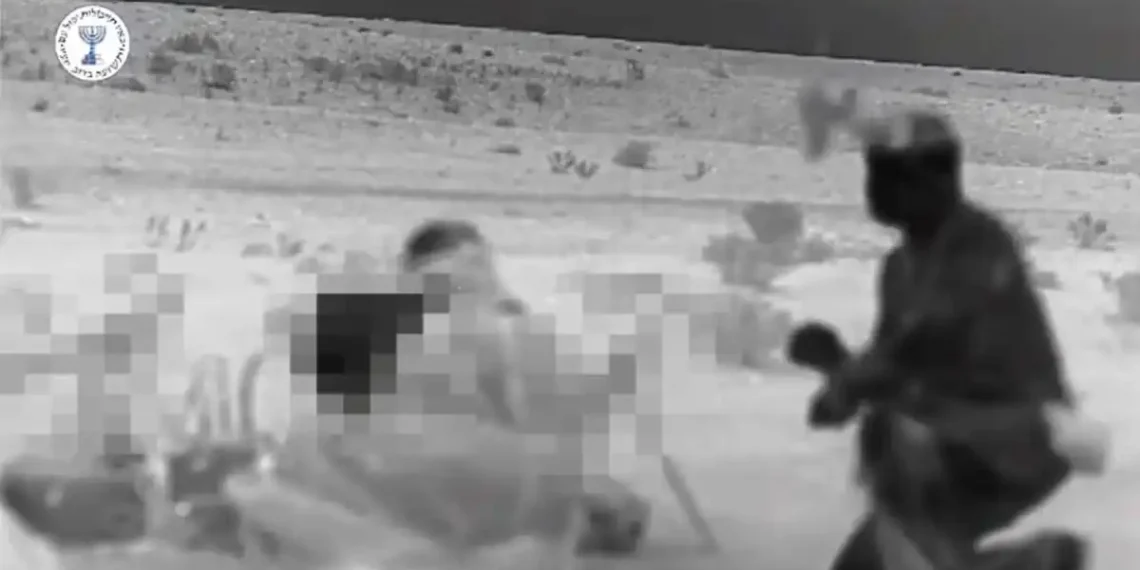Inside the Mossad’s War in the Shadows: How Israel Made Iran Its Intelligence Battlefield
By the time Israeli fighter jets lit up Iranian skies last Friday, the real battle had already been underway for years — fought not by soldiers in uniform, but by covert operatives, drones, remote-controlled weapons, and the long arm of Mossad.
The recent airstrikes — more than 100 carried out by over 200 aircraft — targeted Iran’s missile infrastructure, top military leaders, and even nuclear scientists. But what made the assault so devastating wasn’t just Israel’s military power. It was the fact that much of the operation was launched from inside Iran itself, with Mossad agents having smuggled in weapons, sabotaged air defenses, and helped clear a path for the air force from within enemy territory.
Mossad’s Footprint on the Ground — and in the Sky
According to Israeli security officials, Mossad agents began preparing the battlefield long before the first planes took off. Explosive drones were launched from an internal base reportedly set up inside Iran. These drones struck missile launchers near Tehran and other targets critical to Iran’s air defense. Meanwhile, commando teams placed precision-guided weapons next to missile systems — ensuring that, when the Israeli Air Force began its bombardment, the path was clear.
All Israeli aircraft returned safely — a signal of how effective the covert groundwork had been. The operation, Israeli officials said, required agents and commandos to infiltrate deep into Iranian territory — including the capital — without detection by the country’s powerful but apparently outmaneuvered security agencies.
In a rare move, the Mossad even released video from the drone strikes, showing the moment Iranian missile batteries were taken out. It was part intelligence coup, part psychological warfare.
A Shadow War That’s No Longer in the Shadows
While this week’s operation marked a new level of intensity, Israel’s shadow war with Iran is not new. For nearly two decades, Mossad has quietly — and sometimes very publicly — waged a campaign of assassinations, sabotage, and intelligence theft aimed at slowing Iran’s nuclear ambitions and undermining its military capabilities.
Holly Dagres, an Iran expert at the Washington Institute, put it bluntly: “Mossad has treated Iran like its playground for years. From assassinating top nuclear scientists to sabotaging nuclear facilities, Israel has proved time and again that it holds the upper hand.”
The list of past Mossad operations reads like a spy thriller — except it’s all real.
Assassinations of Nuclear Scientists
Between 2007 and 2012, five Iranian nuclear scientists were assassinated in Tehran — most of them in broad daylight, and all using sophisticated remote-controlled bombs or guns. Iran blamed Israel, and while Israel never officially confirmed responsibility, former Defense Minister Moshe Ya’alon famously quipped in 2015 that Israel “cannot be held responsible for the life expectancy of Iran’s nuclear scientists.”
Among the scientists targeted was Fereydoon Abbasi, who survived an earlier assassination attempt but was reportedly killed in the latest wave of strikes. Just weeks before his death, Abbasi had dismissed Israeli threats, claiming that Iran’s nuclear infrastructure was too decentralized to be crippled by attacks.
But that confidence seems to have been misplaced.
The Nuclear Archive Heist
Perhaps the most jaw-dropping operation came in 2018, when Mossad agents stole Iran’s entire nuclear archive — from Tehran. Israeli Prime Minister Benjamin Netanyahu showcased the files on live television, revealing what he claimed were 55,000 pages and 55,000 digital files detailing Iran’s nuclear weapons program.
The operation reportedly involved months of surveillance, a deep understanding of the archive’s security protocols, and a daring overnight extraction. While Iran called the presentation “childish,” the intelligence coup played a significant role in convincing the Trump administration to abandon the 2015 Iran nuclear deal, officially known as the Joint Comprehensive Plan of Action (JCPOA).
The Killing of Fakhrizadeh
In November 2020, Mohsen Fakhrizadeh — considered the architect of Iran’s nuclear weapons program — was assassinated in a remarkably precise hit while driving near Tehran. Iranian officials claimed he was taken out using a satellite-controlled machine gun. Reports suggest the weapon was installed inside a vehicle and operated remotely, with no agents physically present at the scene.
Israel never claimed responsibility, but Fakhrizadeh had long been at the top of its hit list. The operation required deep intel — including surveillance of his movements, security habits, and daily routines.
Hamas Leaders Targeted on Iranian Soil
In another bold move, Israel reportedly assassinated senior Hamas political leader Ismail Haniyeh inside Tehran following the outbreak of war in Gaza. According to sources familiar with the operation, Mossad planted a bomb in a guest house Haniyeh was known to use. The device was left in place for two months before being detonated remotely — a chilling reminder that even within Iran’s borders, Israel’s enemies aren’t safe.
How Is Mossad Pulling This Off?
Iran’s security apparatus — including the Revolutionary Guard’s intelligence wing — is powerful, but experts say its weaknesses are systemic. Ram Ben Barak, a former Mossad deputy director, points to deep internal dissatisfaction within Iran as a key factor.
“The regime is deeply unpopular,” he said. “That makes it easier to recruit assets and gather intelligence. And then you add the professionalism and tech capabilities of Mossad — it’s a deadly combination.”
Indeed, Mossad’s success isn’t just about infiltration. It’s also about leverage — exploiting local discontent, navigating internal rivalries, and using cutting-edge technology to do what few intelligence services can.
Iran’s Struggles to Respond
Despite repeated breaches, Iran has failed to prevent further incursions. While Iranian officials publicly downplay the damage, the frequency and depth of Mossad’s operations have exposed glaring vulnerabilities. The Israeli intelligence machine continues to operate seemingly at will inside a country that considers itself a regional superpower.
Iranian officials like Abbasi had long claimed their nuclear assets were spread out and hidden underground, making them immune to Israeli attacks. But the latest operation suggests otherwise — or, at the very least, that Israel knows exactly where to look.
A New Phase in a Long Conflict
With Israel now carrying out open airstrikes in tandem with covert assassinations and sabotage, the long-running shadow war with Iran is morphing into something more visible and more dangerous.
Mossad’s operations are no longer just about deterrence — they’re about dominance.
And as recent events show, the battlefield is no longer at the borders. For Israel, the front line now runs straight through Tehran.
This article was rewritten by JournosNews.com based on verified reporting from trusted sources. The content has been independently reviewed, fact-checked, and edited for accuracy, neutrality, tone, and global readability in accordance with Google News and AdSense standards.
All opinions, quotes, or statements from contributors, experts, or sourced organizations do not necessarily reflect the views of JournosNews.com. JournosNews.com maintains full editorial independence from any external funders, sponsors, or organizations.
Stay informed with JournosNews.com — your trusted source for verified global reporting and in-depth analysis. Follow us on Google News, BlueSky, and X for real-time updates.













